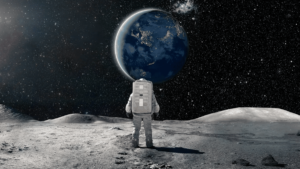
NASA plans to build a settlement for astronauts on the Moon by 2035, acting head of the agency Sean Duffy said at the International Astronautical Congress in Sydney.
“We are going to create sustainable living conditions for people on the Moon,” Duffy said. “Not just an outpost, but an entire settlement.”
According to him, nuclear energy will be used to power the settlement. The reactor, weighing less than 15 tons, will be capable of producing 100 kW of electricity. This is enough to provide the lunar base with electricity for 14 lunar nights, when solar panels will be ineffective.
Duffy said that the US “will return to the moon, and this time, when we plant our flag, we will stay there.” The settlement will be able to permanently host astronauts and will be built from materials found on the surface of the Moon.
As early as February next year, NASA will launch the Artemis II mission with four astronauts on board in the first manned expedition to the Moon in more than 50 years. The astronauts will not land on the surface of Earth’s natural satellite. During the Artemis II mission, the astronauts will test the Space Launch System rocket and the Orion spacecraft, which will eventually take humans to the moon. The crew will fly around the moon for 10 days before returning to Earth.
But a serious test for NASA awaits in mid-2027 with the launch of the Artemis III mission, which plans to land two astronauts near the south pole of the Moon. In September, Duffy said that as part of the Artemis III mission to explore the Moon, which NASA plans to carry out in mid-2027, astronauts will stay on the planet for eight to twelve days. The data they collect on the geology and conditions around the South Pole will be used to prepare for the ultimate goal of building a permanent base on the Moon.
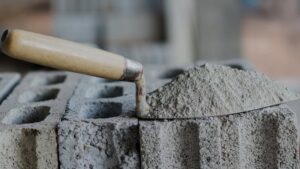
The Experts Club information and analytical center, with the assistance of the Ukrainian Cement Manufacturers Association (Ukrcement), has conducted an analysis of the Ukrainian cement industry.
Over the past five years, the Ukrainian cement industry has experienced a peak in production in 2021, a sharp decline in 2022, a gradual recovery in 2023, and stabilization in 2024. However, the current level is still far from pre-war indicators.
According to trade union and industry reviews, output was about 11 million tons in 2021, fell to 5.4 million tons in 2022, recovered to 7.43 million tons in 2023, and reached 7.93 million tons in 2024. In 2025, manufacturers are talking about an actual “ceiling” — approximately 8 million tons under current risks and logistics, which is likely to be the maximum figure.
The dynamics of domestic cement consumption show a similar trend of “decline and normalization.” In 2021, before the full-scale invasion, consumption was around ~10.6 million tons. In 2022, the cement market fell sharply to approximately 4.5 million tons, rose to 6.2 million tons in 2023, and stabilized at around 6.3 million tons in 2024. Thus, the country approached a stable level of “war” demand, which is almost half of the pre-war level, within the range of 6–6.5 million tons.
The structure of demand has changed: the share of traditional residential and commercial construction has given way to infrastructure and defense projects. The key short-term drivers are fortification works, shelters, emergency repairs of roads and bridges, as well as targeted housing programs such as “єОселя,” which supported demand in 2023–2024, although they did not return it to the 2021 level. The market expects demand to remain stable in 2025, sensitive to the volume of budgetary and international financing.
Amid declining domestic demand, a natural step to support production capacity utilization was the gradual reorientation of part of the cement output to foreign markets. In 2021, cement exports amounted to about 971,000 tons (9% of production), and in 2024, about 1.7 million tons (21.3% of production). The main destinations remain neighboring countries—Poland, Romania, Hungary, and Moldova—as confirmed by both statistical data and industry estimates. The industry has repeatedly emphasized that as soon as domestic consumption begins to grow, the export share will decline in favor of Ukrainian construction sites.
Imports, on the contrary, have declined. After approximately 1 million tons in pre-crisis 2020, deliveries in 2024 decreased to ~40 thousand tons (including niche items such as white cement). This was also influenced by anti-dumping duties: against Turkey — 33–51% (in effect until September 2026), and against Russia/Belarus/Moldova, measures have been extended until 2030. Under the current conditions, when production capacities and logistics are adapted to the “military” level of consumption, demand is fully covered by domestic resources.
The market structure in 2024–2025 is highly concentrated. The key producers are PJSC Ivano-Frankivskcement, the CRH group (after the AMCU approved the deal to acquire CRH’s Dyckerhoff/Buzzi assets — PJSC VIPCEM, Podolsky Cement JSC, Mykolaivcement PJSC, Cement LLC) and Kryvyi Rih Cement PJSC. Despite market discussions, legal disputes, and attention from antitrust authorities—which is to be expected for transactions of this scale—the CRH deal creates potential for integration into global production and logistics chains, attracting new investments, modernizing production, and raising the standards of the competitive environment. In the context of the country’s future large-scale recovery, the agreement opens up opportunities to strengthen supply stability, improve product quality, and develop a competitive environment.
Who is currently driving domestic consumption? In peacetime, the main stabilizers of demand were mass housing construction and infrastructure. In 2023–2025, basic demand will be driven by roads and engineering structures (including fortifications and shelters), municipal and energy facilities, selective reconstruction projects, as well as the private sector — repairs and local construction.
Road construction is an important factor in economic and social development. The introduction of the latest technologies, the use of high-quality materials, and compliance with environmental requirements are key aspects of the successful development of this industry.
The development of the construction and repair of cement concrete roads based on cement mixtures can play a key role in stimulating stable cement consumption in conditions of war and reconstruction. This infrastructure direction makes it possible to maintain the production capacity of enterprises, jobs, and economic activity, despite a significant reduction in residential and commercial construction. Thanks to their durability and endurance, cement concrete pavements are the optimal solution for both military and civilian logistics. The implementation of such projects not only ensures constant demand in the industry, but also the development of related sectors, creating a multiplier effect for the economy even in crisis conditions. This issue will be the focus of a specialised seminar organised by NIRI and the Ukrcement Association on 15-16 October 2025, where the advantages and role of cement concrete solutions in the reconstruction of Ukraine will be discussed (details at ukrcement.com.ua).
In terms of sales channels, the market remains predominantly B2B: most of the cement is purchased by contractors, road and infrastructure companies, large developers, reinforced concrete manufacturers, and concrete plants. The B2C channel (retail chains of building materials, small contractors) continues to play a significant role in repairs and low-rise construction, but in terms of total volume, it is inferior to the project segment. Industry reviews of construction projects and reports on fortification works in 2024–2025 provide further confirmation of the “infrastructure” shift.
The geography of foreign sales shows a stable “corridor” and proximity to the EU. According to trade statistics for 2023, Romania accounted for the largest value of supplies, followed by Poland and Hungary; in 2024, Romania, Poland, and Hungary remained in the lead.
This reflects shortages in the EU border markets and the competitiveness of Ukrainian prices with close logistics.
What limits growth. Military risks and energy infrastructure (in particular, the availability of electricity), regional logistics, as well as regulatory and competitive issues. A large-scale jump in consumption (approximately 12–13 million tons) requires a steady inflow of investment resources for reconstruction of around $35 billion per year — the association considers such a scenario to be technically and operationally realistic. Predictable competition rules and price monitoring are important in the equation so that the “reconstruction” multiplier is not absorbed by costs.
Conclusion by Experts Club. The industry has found a “military balance”: production of about 8 million tons, domestic consumption of ~6.3 million tons, and exports as insurance at the level of 1.5–1.7 million tons. With the scaling up of energy restoration and strengthening programs, a shift from exports to the domestic market is logical. The key to acceleration is stable financing of infrastructure and housing, affordable energy, and maintaining fair competition between major players. In such a scenario, cement remains one of the first materials that quickly transforms the budget into employment and GDP — through concrete, reinforced concrete structures, roads, and fortifications.
Sources: Global Cement (production and consumption; import duties), Interfax-Ukraine/Ukrcement (exports in 2024; estimates of reconstruction needs), OEC (export destinations in 2023), CEMBUREAU (imports, exports, and consumption, in particular the benchmark for 2024), industry and business media regarding the CRH/Dyckerhoff deal and the competitive situation.
Source: https://expertsclub.eu/rynok-czementu-ukrayiny-doslidzhennya-experts-club/

Issue #2 – September 2025
The purpose of this review is to provide an analysis of the current situation on the Ukrainian currency market and forecast the hryvnia exchange rate against key currencies based on the latest data. We analyze current conditions, market dynamics, key influencing factors, and likely scenarios.
Analysis of the current situation on the currency market
International context
The first half of September was marked by expectations of decisions by the world’s leading central banks. In the United States, markets were expecting policy easing at the beginning of the month: inflation rose only slightly, and the labor market showed a gradual cooling. This prompted investors to lay a high probability of a rate cut by the Federal Reserve. As a result, the dollar weakened, while the euro recovered even without its own drivers, only due to pressure on the US currency.
The European Central Bank, for its part, left its policy unchanged: inflation is stable at around 2%, the economy is growing slowly, and there are no new reasons for the euro to break out. Oil and gas prices remained in relative balance in August-September, creating no additional risks or opportunities for the EU currency.
The key external factor for the FX markets in the coming weeks will be further signals from the Fed and the ECB.
New data on inflation and the US labor market remain key benchmarks for the Federal Reserve. If the rate of price growth remains within forecasts and employment continues to cool, this will strengthen the case for easing policy in the near future. On the contrary, a sudden jump in prices or unexpectedly strong employment figures could force the Fed to wait and take its time with rate cuts.
For the European Central Bank, the main benchmarks remain inflation in the eurozone and the growth rates of the economies of Germany and France. If inflation continues to hover around 2%, the ECB will maintain a pause. Any acceleration of inflationary processes could become a brake on further money depreciation.
Thus, in the coming weeks, it will be the macro data from the US and the EU that will determine sentiment on the global FX market. For the hryvnia, this means that the dollar and euro exchange rates against the national currency will remain influenced by external signals rather than internal factors.
If the US confirms its course for a new wave of easing, the dollar will lose some more support, and the euro may strengthen further. If the Fed decides to keep rates on hold longer, the dollar will get a short-term boost.
For Ukraine, this will mean that both key currency pairs (USD/UAH and EUR/UAH) will continue to fluctuate primarily in response to external signals.
Domestic Ukrainian context
The NBU continues to maintain control over the market: reserves remain at record levels, and the official hryvnia exchange rate is gradually strengthening. The cash market moves in sync with each other without deviations, and bid-ask spreads remain stable.
This confirms that in recent months, the Ukrainian foreign exchange market has maintained a balance and a kind of “exchange rate consensus” between the regulator, foreign exchange market operators, and export-import businesses.
An additional marker is the average annual exchange rate of 45.6 UAH/USD set by the government in the draft budget for 2026. This benchmark almost coincides with business expectations for the next year (46 UAH/USD) and shows the consensus of both the government and the market in the medium term towards controlled devaluation with almost flat dynamics rather than hryvnia strengthening.
There are currently no internal factors that can radically change the situation in the coming weeks. All key drivers are of external origin. If the dollar weakens globally, the hryvnia will have an additional chance to strengthen; if the dollar pulls back, the Ukrainian market will feel it very quickly.
The strategic stability of the Ukrainian currency market, as well as the economy’s ability to withstand the pressure of the war’s aftermath, is enhanced by the willingness of international partners to financially support the country, as well as intensive discussions in the EU about mechanisms for financing Ukraine with frozen Russian funds.
US dollar exchange rate: dynamics and analysis
General characteristics of market behavior
At the end of September, the dollar demonstrated a gradual upward reversal after several weeks of flat sliding. While at the beginning of the month the market was in the range of UAH 41.00-41.30/$, the last few days have been marked by a synchronized rise in both buying and selling, and the official NBU rate.
In fact, the market has moved into a correction phase, testing the upper limits of the usual range: all exchange rate indicators have moved up simultaneously, signaling that the intensity of transactions and demand are gradually increasing. Operators reflect this in their quotes. This trend is likely to continue into October, with the dollar moving smoothly along an almost flat trajectory without any sharp movements.
Despite the smooth growth of the dollar, spreads remain stable (0.40-0.50 UAH/$), which reflects the controllability of the market and the absence of sharp distortions that can dramatically change the market situation.
Key factors of influence
Forecast.
Euro exchange rate: dynamics and analysis
General characteristics of market behavior
The euro showed steady growth on the Ukrainian market in September. On a monthly retrospective horizon, quotes rose by an average of UAH 0.40-0.50 per euro.
Despite the multidirectional fluctuations in the euro, the main focus should be on the spread, which has widened significantly in relation to buying, signaling a decline in demand from the population.
Key observations
Ø Exchange rate geometry:
o The selling rate has been steadily pulling upward, laying the groundwork for further growth.
o The buying rate is moving away from the NBU’s official rate – market operators are no longer willing to buy back euros from clients at “premium” prices, as demand has declined.
Ø Supply and demand:
o Demand for cash euros has cooled significantly after the summer peak, as seen in the reduction in purchase volumes.
o The supply of euros from households remains strong, which is why purchase rates are being pushed to the lower bound.
Influence of external factors:
– The euro is supported solely by a weaker dollar, with no growth drivers of its own.
– Expectations of the Fed and ECB rate decisions in October and November remain the main risk/potential factor for the EUR/USD pair and, accordingly, for the EUR/UAH exchange rate.
Forecast.
Recommendations: dollar or euro – buy, sell, or wait?
USD/UAH
The dollar entered a corrective recovery phase at the end of September, but globally, the market has already priced in a “cheaper” dollar after the September Fed rate cut.
This means that there is limited room for a large-scale decline, and the dynamics will continue to depend on new macro data and signals from Washington.
There is no need to fundamentally shift the structure of savings in favor of the dollar at this time, as liquidity is more important than fixing the exchange rate. The best strategy is to gradually diversify your purchases in small tranches to build up a reserve.
It is advisable to sell the dollar only in the event of short upward spikes after decisions or signals from the Fed, as they can provide so-called time windows for profitable profit-taking.
For speculative operations, it is best to work with short positions and clear stops. The current corridors of 41.20-41.70 UAH/$ allow you to catch small fluctuations, but do not count on sharp jumps. Macro signals from the US or the EU can provoke short impulses that will bring benefits on quick trades.
EUR/UAH
The euro is holding steady on the Ukrainian market: sales are pulling up, while purchases are pressing against the official NBU exchange rate.
At the same time, the potential for further euro growth remains, primarily if the Fed continues to ease and the ECB is in no hurry to change its policy.
It is now possible to buy euros in small installments, especially for those planning to spend in the eurozone or diversify their portfolios. At the same time, you shouldn’t chase short-term peaks – it’s better to act in a planned manner and have liquidity to maneuver.
It makes little sense to sell the euro at current levels, as the upside potential (up to UAH 49.5-50/€ in the coming months) exceeds the risks of a pullback.
For speculative operations, the euro remains more attractive due to its higher elasticity: selling moves up, while buying stays down, creating a wider space for playing on fluctuations. To take advantage of this, you can expect the rate to rise to 49.5-50 UAH/€, and before or on the days of macro data releases, you should focus on short entry/exit trades.
Overall strategy
Now is clearly not the time to bet on one currency. Both the dollar and the euro remain influenced by external signals. The dynamics of macro data in key economies may become a trigger for the Fed and the ECB, which will determine where the exchange rate pendulum will swing next.
The basis of the strategy is to maintain liquidity and flexibility. Buy in tranches, sell only at peaks, and plan transactions in ranges rather than points.
In the medium and long term, there is a stable consensus between the government and business in favor of controlled devaluation, so the currency as a basic asset for saving savings retains its value.
This material was prepared by analysts of the international multiservice product FinTech platform KYT Group and reflects their expert, analytical professional judgment. The information presented in this review is for informational purposes only and cannot be considered as a recommendation for action.
The Company and its analysts make no representations and assume no liability for any consequences arising from the use of this information. All information is provided “as is” without any additional warranties of completeness, obligations of timeliness or to update or supplement.
Users of this material should make their own risk assessment and informed decisions based on their own evaluation and analysis of the situation from various available sources that they consider to be sufficiently qualified. We recommend that you consult an independent financial advisor before making any investment decisions.
REFERENCE
KYT Group is an international multi-service product FinTech platform that has been successfully operating in the non-banking financial services market for 16 years. One of the company’s flagship activities is currency exchange. KYT Group is one of the largest operators in this segment of the financial market of Ukraine, is included in the list of the largest taxpayers, and is one of the industry leaders in terms of asset growth and equity.
More than 90 branches in 16 major cities of Ukraine are located in convenient locations for customers and have modern equipment for the convenience, security and confidentiality of each transaction.
The company’s activities comply with the regulatory requirements of the NBU. KYT Group adheres to EU standards, having a branch in Poland and planning cross-border expansion to European countries.
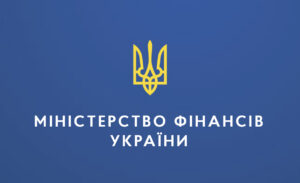
The total public and publicly guaranteed debt of Ukraine as of the end of August 2025 amounted to $192.71 billion, which is $6.58 billion more than a month earlier, the Ministry of Finance reported.
In hryvnia terms, the debt reached UAH 7.95 trillion, exceeding the July figure by UAH 177.41 billion.
Debt structure:
External debt – $145.17 billion (UAH 5.99 trillion), or 75.34% of the total.
Domestic debt – $47.54 billion (UAH 1.96 trillion), or 24.66%.
For comparison, as of July 31, 2025, the public debt amounted to $186.13 billion, or UAH 7.77 trillion. Thus, in August alone, it increased by $6.58 billion (UAH 76.92 billion).
The Ministry of Finance reminded that starting from 2027, public debt service payments will increase sharply. This may lead to the need to reallocate budget expenditures, including for defense, social programs and post-war recovery.
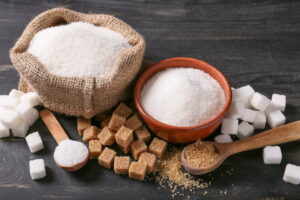
Every sugar factory has a place where numbers are turned into decisions, and decisions are turned into consistent quality. This is the laboratory. Its work is explained in the new free online course “Sugar Factory Laboratory” on the AgriAcademy educational platform by technologists from the Astarta agro-industrial holding, writes SEEDS.
The course will help specialists combine the field and production into one clear technological chain — without sucrose losses, with transparent control and predictable results.
What is this course about?
It is a unique opportunity to see the entire journey that sugar beets take to ensure that every kilogram of sugar is of high quality — from the field to the crystal.
You will learn:
The course focuses on systematic quality control:
The course is part of a series of courses on sugar beet cultivation and processing technologies from the agro-industrial holding “Astarta.”
Other training courses from Astarta specialists are also available on the platform:
Astarta is a vertically integrated agro-industrial holding in Ukraine, a public European company that conducts socially responsible business and produces food products with a focus on global markets. Its main activities are concentrated in crop production, the sugar industry, dairy farming, soybean processing, grain logistics, and bioenergy.
AgriAcademy is a free online learning platform created on the initiative of the EBRD as part of its food security support program in Ukraine. Its goal is to strengthen the competitiveness and sustainable development of agriculture, which has suffered significant losses due to the war.
The creation and management of the platform (including the development of courses, educational tours, etc.) is carried out with the support and funding of the EBRD, as well as:
agriculturalist, ASTARTA, educational course, sugar factory laboratory
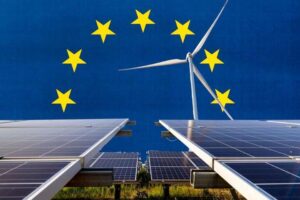
Renewable energy sources (RES) in the European Union accounted for 54% of total electricity generation in the second quarter of 2025, up 1.3 percentage points from 52.7% a year earlier, the EU statistics office said.
This was mainly due to higher generation from solar power plants (SPPs), which accounted for 19.9% of total output.
At the same time, June was the first month in history when SES accounted for the bulk of generation (22%). This was followed by nuclear power plants (21.6%), wind power plants (15.8%), hydropower plants (14.1%) and gas-fired power plants (13.8%).
The most significant share of RES in total generation was recorded in Denmark (94.7%), where RES account for a significant amount of electricity generation. This is followed by Latvia (93.4%), Austria (91.8%), Croatia (89.5%) and Portugal (85.6%).
The lowest share of RES is in Slovakia (19.9%), Malta (21.2%) and the Czech Republic (22.1%).